CORPORATE ACTION: Church Dwight
Arm & Hammer Partners With TerraCycle To Offer Free Recycling Program
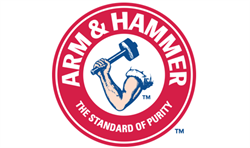
Arm & Hammer is working with recycling company TerraCycle to provide consumers with an option for recycling their toothpaste packaging. Church & Dwight Co., Inc., is sponsoring the Free Recycling Program. Customers can mail in used packaging using a prepaid shipping label available online from TerraCycle.[Image Credit: © Church & Dwight Co.]
CORPORATE ACTION: Colgate
Colgate-Palmolive’s Recyclable Toothpaste Tube Wins Edison Patent Award

Colgate-Palmolive has won the Research and Development Council of New Jersey’s Edison Patent Award for Colgate’s recyclable toothpaste tube. Colgate technical associate Jun Wang received the award and said that the company’s leadership in the market and its sustainability and social impact goals inspired the research team to come up with the tube. Colgate participate in the Association of Plastic Recyclers’ conferences to learn about the group’s design and evaluation protocols for plastic recycling systems.[Image Credit: © Colgate-Palmolive Company]
CORPORATE ACTION: Henkel
Plastic Bank, Henkel Egypt Highlight Collection Of 300 Million Plastic Bottles
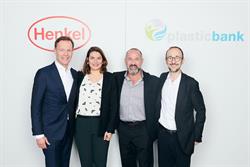
Strategic partners Plastic Bank and Henkel Egypt celebrated the collection of more than 300 million plastic bottles in the country. Plastic Bank has developed a strategy for creating an “ecosystem for collecting plastic waste and improving waste collectors’ living conditions” in Egypt. In partnership with Henkel Egypt, the group has introduced an ecosystem that supports the circular economy.[Image Credit: © Henkel AG & Co. KGaA]
CORPORATE ACTION: Lidl
Lidl GB Expands Prevented Ocean Plastic Packaging To Some Fresh Meat Products
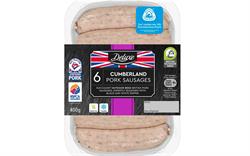
Lidl GB is expanding its use of Prevented Ocean Plastic (POP) packaging for the discount retailer’s fresh meat packaging. Lidl GB became the first U.K. supermarket chain to use POP recycled plastic in its packaging, enabling tonnes of plastic from entering the ocean every year.[Image Credit: © Lidl Great Britain Limited]
CORPORATE ACTION: Mars
Mars Pet Nutrition Joins Carrefour’s Bulk-Sale Program To Help Promote Sustainable Packaging
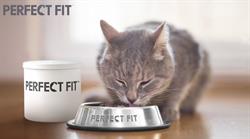 Mars Pet Nutrition is supporting French retailer Carrefour’s sustainability initiative by making its PERFECT FIT dry cat food and CATISFACTIONS and WHISKAS brands of pet care and treats available for bulk purchase from the Montesson hypermarket. The move is also expected to reduce single-use plastic packaging and support moves toward a circular economy. The company’s partnership with Carrefour is part of the collaboration trend under the country’s National Pact on Plastic Packaging.[Image Credit: © Mars, Incorporated]
Mars Pet Nutrition is supporting French retailer Carrefour’s sustainability initiative by making its PERFECT FIT dry cat food and CATISFACTIONS and WHISKAS brands of pet care and treats available for bulk purchase from the Montesson hypermarket. The move is also expected to reduce single-use plastic packaging and support moves toward a circular economy. The company’s partnership with Carrefour is part of the collaboration trend under the country’s National Pact on Plastic Packaging.[Image Credit: © Mars, Incorporated]
CORPORATE ACTION: McDonald’s
McDonald’s Says It Will Stop Using Plastic Cutlery In UK And Ireland
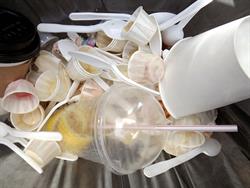
The restaurant chain has said it plans to remove all plastic cutlery from its menu offering in the UK and Ireland. It tried using paper-based alternatives in Scotland, Ireland and Northern Ireland in the first half of 2022 and, as of November 7, 2022, it will introduce these across England and Wales. According to the company, the move will eliminate 850 metric tons of single-use plastic each year in the U.K. and Ireland.[Image Credit: © Dennis from Pixabay]
CORPORATE ACTION: Nestlé
Nespresso Introduces Home-Compostable Coffee Capsules

Nespresso announced a paper-based coffee capsule that consumers can compost at home. The company spent three years of research and development in creating the capsule. Nespresso will test market the new capsule, which is compatible with the company’s Original machines, in France and Switzerland starting in spring 2023.[Image Credit: © Nestlé]
Nestlé Expects To Cut Use Of Virgin Plastic By A Third By 2025
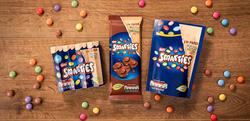 Swiss food-maker, Nestlé, is expected to achieve its goal of reducing its use of virgin plastic by one-third by 2025. Also, the company has reduced by 35 percent the total weight of its plastic packaging from 1.5 million tonnes in 2019 to 0.98 million tonnes by the end of 2021. The company also reduced its use of single-use plastic packaging by introducing in-store product refill systems, such as its collaboration with retailer Carrefour in France.[Image Credit: © Nestlé]
Swiss food-maker, Nestlé, is expected to achieve its goal of reducing its use of virgin plastic by one-third by 2025. Also, the company has reduced by 35 percent the total weight of its plastic packaging from 1.5 million tonnes in 2019 to 0.98 million tonnes by the end of 2021. The company also reduced its use of single-use plastic packaging by introducing in-store product refill systems, such as its collaboration with retailer Carrefour in France.[Image Credit: © Nestlé]
CORPORATE ACTION: PepsiCo
Eastman Signs Deal To Supply PepsiCo With Recycled PET
 Eastman Chemical Company has agreed to supply PepsiCo with recycled PET. The chemical recycling company will source the recycled PET waste from its planned third PET chemical recycling facility in the U.S., which is expected to start operating in 2026. Energy market analyst ICIS, quoting from Eastman’s earnings report for the third quarter of 2022, said the proposed facility will have an input capacity of 160,000 tonnes per year of hard to recycle PET waste and maximum output of 150,000 tonnes per year.[Image Credit: © Eastman Chemical Company]
Eastman Chemical Company has agreed to supply PepsiCo with recycled PET. The chemical recycling company will source the recycled PET waste from its planned third PET chemical recycling facility in the U.S., which is expected to start operating in 2026. Energy market analyst ICIS, quoting from Eastman’s earnings report for the third quarter of 2022, said the proposed facility will have an input capacity of 160,000 tonnes per year of hard to recycle PET waste and maximum output of 150,000 tonnes per year.[Image Credit: © Eastman Chemical Company]
CORPORATE ACTION: Procter & Gamble
P&G Is Test Marketing Liquid Fabric Conditioner In Paper Bottles
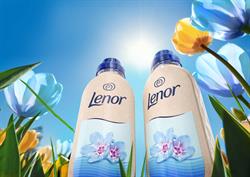
Procter & Gamble and Paper Bottle Company are test marketing P&G Fabric & Home Care’s Lenor brand of liquid fabric conditioner in paper bottles. P&G is collaborating with Netherlands-based supermarket chain Albert Heijn to sell 120,000 paper bottles of the Lenor product in early 2023. The Lenor paper bottles to be sold next year are composed of FSC-certified paper fibers with an inner layer of recycled plastics.[Image Credit: © Procter & Gamble]
P&G Philippines Adopts Environment-Friendly Point-Of-Sales Supplies
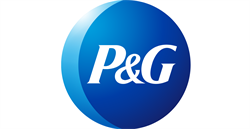
Procter & Gamble Philippines has launched its Project LESS program, which aims to increase the company’s efforts to “reduce, reuse and recycle waste in its business ecosystem”. The program also focuses on recycling point-of-sales materials and other customer-focused marketing supplies. [Image Credit: © Procter & Gamble]
CORPORATE ACTION: Reckitt Benckiser
Reckitt And Essity Launch Co-Branded Professional Hygiene Products With Sustainable Packaging
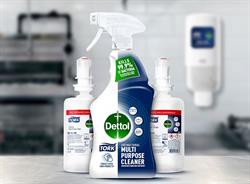 Reckitt and Essity have launched a line of co-branded disinfection products designed for professional hygiene customers. The co-branding deal combines Essity’s Tork brand of professional hygiene products with Reckitt’s Dettol and Sagrotan brands of disinfecting products. The range includes the Antibacterial Multipurpose Cleaner spray that comes in a 100 percent recyclable bottle and trigger, manufactured with zero waste to landfill, and an Antimicrobial Foam Soap and Hand Sanitizer Gel in Tork recyclable and collapsible bottles.[Image Credit: © Reckitt Benckiser Group PLC]
Reckitt and Essity have launched a line of co-branded disinfection products designed for professional hygiene customers. The co-branding deal combines Essity’s Tork brand of professional hygiene products with Reckitt’s Dettol and Sagrotan brands of disinfecting products. The range includes the Antibacterial Multipurpose Cleaner spray that comes in a 100 percent recyclable bottle and trigger, manufactured with zero waste to landfill, and an Antimicrobial Foam Soap and Hand Sanitizer Gel in Tork recyclable and collapsible bottles.[Image Credit: © Reckitt Benckiser Group PLC]
CORPORATE ACTION: Tesco
Tesco Says To Remove Plastic Packaging From Bakery Operations
 Tesco plans to remove plastic packaging from many of its most popular bakery products to remove 33 million pieces of plastic from its operations each year. The U.K. retailer also plans to sell loose loaves of bread and reduce the plastic packaging of breakfast pastries by more than 120 tonnes every year. This move is part of the company’s 4Rs packaging strategy: removing plastic where it can, reducing where it cannot, looking at ways to increase reuse, and recycling what plastic packaging remains.[Image Credit: © jacqueline macou from Pixabay]
Tesco plans to remove plastic packaging from many of its most popular bakery products to remove 33 million pieces of plastic from its operations each year. The U.K. retailer also plans to sell loose loaves of bread and reduce the plastic packaging of breakfast pastries by more than 120 tonnes every year. This move is part of the company’s 4Rs packaging strategy: removing plastic where it can, reducing where it cannot, looking at ways to increase reuse, and recycling what plastic packaging remains.[Image Credit: © jacqueline macou from Pixabay]
CORPORATE ACTION: Unilever
Unilever Calls For Legally Binding International Treaty On Fighting Plastic Pollution
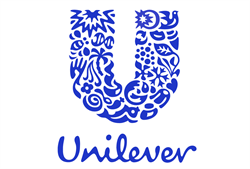 Unilever is calling on the United Nations to adopt a strong and legally binding treaty aimed at finding solutions to plastic pollution. Unilever is joining the Business Coalition for a Global Plastics Treaty at the first Intergovernmental Negotiating Committee meeting in Uruguay, which will see more than 500 government representatives start negotiations on the proposed treaty. Unilever supports a treaty that will reduce the production and use of virgin plastic, improve the circulation of plastic and prevent plastic leakage. Also, the treaty should “set global targets, rules and obligations”; set common regulatory standards and policies; and come up with common definitions and reporting metrics.[Image Credit: © Unilever]
Unilever is calling on the United Nations to adopt a strong and legally binding treaty aimed at finding solutions to plastic pollution. Unilever is joining the Business Coalition for a Global Plastics Treaty at the first Intergovernmental Negotiating Committee meeting in Uruguay, which will see more than 500 government representatives start negotiations on the proposed treaty. Unilever supports a treaty that will reduce the production and use of virgin plastic, improve the circulation of plastic and prevent plastic leakage. Also, the treaty should “set global targets, rules and obligations”; set common regulatory standards and policies; and come up with common definitions and reporting metrics.[Image Credit: © Unilever]
Unilever Aims To Reduce Greenhouse Gas Emissions Of Cleaning Products
 Unilever is reducing the carbon footprint of the company’s cleaning products by working to reduce by half the greenhouse gas emissions per consumer by 2030 and reach net zero across its business operations by 2039. Jon Hague, head of Clean Future, Science and Technology for Home Care, said greenhouse gas emissions per consumer have dropped 43 percent across Home Care products. Hague also said his company aims to develop 100 percent biodegradable ingredients for washing products by 2030 and improve weight efficiency of chemical ingredients.[Image Credit: © Unilever]
Unilever is reducing the carbon footprint of the company’s cleaning products by working to reduce by half the greenhouse gas emissions per consumer by 2030 and reach net zero across its business operations by 2039. Jon Hague, head of Clean Future, Science and Technology for Home Care, said greenhouse gas emissions per consumer have dropped 43 percent across Home Care products. Hague also said his company aims to develop 100 percent biodegradable ingredients for washing products by 2030 and improve weight efficiency of chemical ingredients.[Image Credit: © Unilever]
Unilever Asserts Sustainability Supports Company’s Bottom Line
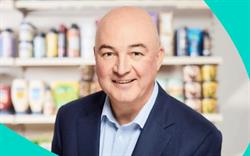 Alan Jope, Unilever’s CEO, said the company’s sustainability-related activities are helping its bottom line. Jope also rejected shareholder Terry Smith’s claim that sustainability is a “distraction from core business fundamentals”. Unilever started its sustainability initiative under former CEO Paul Polman who introduced the company’s Sustainable Living Plan program. Jope has continued his predecessor’s initiative by launching the Compass program, which aims to eliminate 100 percent of the company’s emissions by 2030.[Image Credit: © Unilever]
Alan Jope, Unilever’s CEO, said the company’s sustainability-related activities are helping its bottom line. Jope also rejected shareholder Terry Smith’s claim that sustainability is a “distraction from core business fundamentals”. Unilever started its sustainability initiative under former CEO Paul Polman who introduced the company’s Sustainable Living Plan program. Jope has continued his predecessor’s initiative by launching the Compass program, which aims to eliminate 100 percent of the company’s emissions by 2030.[Image Credit: © Unilever]
CORPORATE ACTION: Other
SC Johnson Professional’s New Washroom Soap Dispenser To Help Reduce Plastic Waste
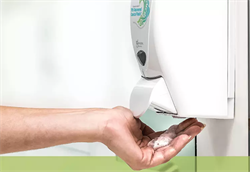
SC Johnson Professional is launching the SCJ Professional Proline WAVE washroom soap dispenser made from 70 percent recovered coastal plastic. According to the company, each soap dispenser is equal to 16 500ml plastic bottles prevented from reaching the oceans or landfills. At present, the company is working with Plastic Bank in enabling coastal communities in Indonesia, Philippines and Brazil to keep plastic waste from entering the oceans and landfills.[Image Credit: © SC Johnson Professional USA, Inc.]
South Korea’s Montbest Reveals Labelless Beverage Packaging
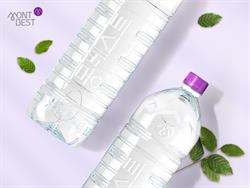 The American Cleaning Institute has issued a statement opposing a petition from Blueland and the Plastic Pollution Coalition calling on the U.S. Environmental Protection Agency to “limit the use of polyvinyl alcohol film in laundry packets and automatic dishwasher detergent tablets”. The two organizations, supported by other sustainability groups, including Made Safe, Beyond Plastics, and Plastics Oceans International, are calling for health and environmental safety tests of PVA films. They are also calling for removal of the material from the Safer Choice List and Safer Chemical Ingredients List until the tests can be completed.[Image Credit: © KOREA CRYSTAL BEVERAGE CO.,LTD.]
The American Cleaning Institute has issued a statement opposing a petition from Blueland and the Plastic Pollution Coalition calling on the U.S. Environmental Protection Agency to “limit the use of polyvinyl alcohol film in laundry packets and automatic dishwasher detergent tablets”. The two organizations, supported by other sustainability groups, including Made Safe, Beyond Plastics, and Plastics Oceans International, are calling for health and environmental safety tests of PVA films. They are also calling for removal of the material from the Safer Choice List and Safer Chemical Ingredients List until the tests can be completed.[Image Credit: © KOREA CRYSTAL BEVERAGE CO.,LTD.]
Coty Releases Earth-Friendly Refillable Perfume
 Coty has launched the Chloé Rose Naturelle Intense, a brand of perfume that comes in refillable bottles. According to the company, the packaging helps reduce greenhouse gas emission by up to 65 percent while lowering water consumption by 67 percent. Also, it helps the company reduce energy consumption by 66 percent and mineral resources consumption by 75 percent. The company also revealed that the product has received a C2C Certified Material Health Certificate at the Silver level.[Image Credit: © Coty Inc.]
Coty has launched the Chloé Rose Naturelle Intense, a brand of perfume that comes in refillable bottles. According to the company, the packaging helps reduce greenhouse gas emission by up to 65 percent while lowering water consumption by 67 percent. Also, it helps the company reduce energy consumption by 66 percent and mineral resources consumption by 75 percent. The company also revealed that the product has received a C2C Certified Material Health Certificate at the Silver level.[Image Credit: © Coty Inc.]
ALLIANCES, PARTNERSHIPS & JVs
Co-op Partners With Polytag To Launch Monitoring System For Plastic Recycling
 Polytag and U.K. retailer Co-op are collaborating to start a pilot project aimed at helping the supermarket chain determine the extent of recycling of its plastic packaging. Expected to take place in North Wales between the first and second quarters of 2023, the test run will employ Polytag’s ultraviolet tag-reading technology. This will allow Co-op to gather data, such as the number of plastic containers that were sorted and handled at material recovery facilities. Data collected will be uploaded to Polytag’s cloud-based analytics dashboard.[Image Credit: © Polytag]
Polytag and U.K. retailer Co-op are collaborating to start a pilot project aimed at helping the supermarket chain determine the extent of recycling of its plastic packaging. Expected to take place in North Wales between the first and second quarters of 2023, the test run will employ Polytag’s ultraviolet tag-reading technology. This will allow Co-op to gather data, such as the number of plastic containers that were sorted and handled at material recovery facilities. Data collected will be uploaded to Polytag’s cloud-based analytics dashboard.[Image Credit: © Polytag]
POLICY, REGULATION & LEGAL
American Cleaning Institute Opposes Petition Against Polyvinyl Alcohol Film In Laundry Care Products
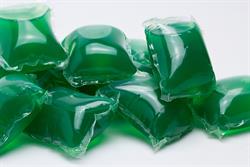 The American Cleaning Institute has issued a statement opposing a petition from Blueland and the Plastic Pollution Coalition calling on the U.S. Environmental Protection Agency to “limit the use of polyvinyl alcohol film in laundry packets and automatic dishwasher detergent tablets”. The two organizations, supported by other sustainability groups, including Made Safe, Beyond Plastics, and Plastics Oceans International, are calling for health and environmental safety tests of PVA films. They are also calling for removal of the material from the Safer Choice List and Safer Chemical Ingredients List until the tests can be completed.[Image Credit: © Antonio Jose Cespedes from Pixabay]
The American Cleaning Institute has issued a statement opposing a petition from Blueland and the Plastic Pollution Coalition calling on the U.S. Environmental Protection Agency to “limit the use of polyvinyl alcohol film in laundry packets and automatic dishwasher detergent tablets”. The two organizations, supported by other sustainability groups, including Made Safe, Beyond Plastics, and Plastics Oceans International, are calling for health and environmental safety tests of PVA films. They are also calling for removal of the material from the Safer Choice List and Safer Chemical Ingredients List until the tests can be completed.[Image Credit: © Antonio Jose Cespedes from Pixabay]
EC Plans To Raise Minimum Recycled Plastic In New Packaging
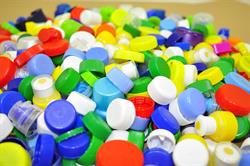 The European Commission plans to raise the minimum amount of recycled plastic in new packaging by January 2030. The proposed rule change will be part of the revision of the European Union’s packaging and packaging waste directive expected to be unveiled on November 30, 2022. EURACTIV revealed that the proposed targets for 2030 include 25 percent recycled content for contact sensitive plastic packaging, such as food wraps; 50 percent for single-use plastic beverage bottles; and 45 percent for other plastic packaging. These content levels are expected to increase further in 2040.[Image Credit: © Artur Konik from Pixabay]
The European Commission plans to raise the minimum amount of recycled plastic in new packaging by January 2030. The proposed rule change will be part of the revision of the European Union’s packaging and packaging waste directive expected to be unveiled on November 30, 2022. EURACTIV revealed that the proposed targets for 2030 include 25 percent recycled content for contact sensitive plastic packaging, such as food wraps; 50 percent for single-use plastic beverage bottles; and 45 percent for other plastic packaging. These content levels are expected to increase further in 2040.[Image Credit: © Artur Konik from Pixabay]
UK Government Will Not Set Target For Reducing Single-Use Plastic
 The U.K. Government has no plans to “introduce a specific plastic reduction target” under the country’s Environment Act 2021 environmental protection law. Minister for Resources and Waste Trudy Harrison answered two parliamentary questions regarding the Government’s plans to introduce targets for plastic waste reduction. Member of Parliament Beth Winter asked if the Department for Environment, Food & Rural Affairs would adopt legislators’ proposed 50 percent reduction in single-use plastic by 2025, while Claire Hanna MP asked if the Secretary of State would adopt a fixed plastic reduction target.[Image Credit: © UK Government and Crown Open Government Licence]
The U.K. Government has no plans to “introduce a specific plastic reduction target” under the country’s Environment Act 2021 environmental protection law. Minister for Resources and Waste Trudy Harrison answered two parliamentary questions regarding the Government’s plans to introduce targets for plastic waste reduction. Member of Parliament Beth Winter asked if the Department for Environment, Food & Rural Affairs would adopt legislators’ proposed 50 percent reduction in single-use plastic by 2025, while Claire Hanna MP asked if the Secretary of State would adopt a fixed plastic reduction target.[Image Credit: © UK Government and Crown Open Government Licence]
INNOVATION & TECHNOLOGY
Bower Offers App That Lets Consumers Get Paid For Recycling

Sweden-based environment-friendly startup Bower is offering an app designed to pay consumers to recycle, tell them where and how to recycle, and provide information on how their recycling affects the environment. The app comes with built-in GPS and is compatible with Android and iOS devices. Bower has received more than $5.5 million in funding since March 2022 and currently operates across the Nordics, with expansion activities in the U.K. and the U.S.[Image Credit: © Shayna Douglas on Unsplash]
RESEARCH
Report Shows Gap Between Companies’ Sustainability Goals And Concrete Actions
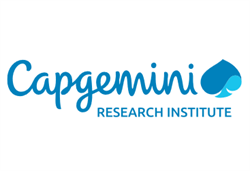 Only 21 percent of executives believe the business case for implementing sustainability measures is clearly presented, according to data from the Capgemini Research Institute. Details from the research organization’s report, “A World in Balance: Why Sustainability Ambition Is Not Translating to Action,” suggests there remains a gap between companies’ climate ambition and concrete actions. Of the companies included in the report, 49 percent have a defined list of initiatives for the next three years, with 37 percent reorganizing their operating model. Also, companies with revenue over $20 billion reported 0.41 percent of total revenue spent on sustainability initiatives, while companies with $1 billion to $5 billion in revenue have spent 2.81 percent.[Image Credit: © Capgemini]
Only 21 percent of executives believe the business case for implementing sustainability measures is clearly presented, according to data from the Capgemini Research Institute. Details from the research organization’s report, “A World in Balance: Why Sustainability Ambition Is Not Translating to Action,” suggests there remains a gap between companies’ climate ambition and concrete actions. Of the companies included in the report, 49 percent have a defined list of initiatives for the next three years, with 37 percent reorganizing their operating model. Also, companies with revenue over $20 billion reported 0.41 percent of total revenue spent on sustainability initiatives, while companies with $1 billion to $5 billion in revenue have spent 2.81 percent.[Image Credit: © Capgemini]
UK University Urges UN To Aim For Zero New Plastic Pollution
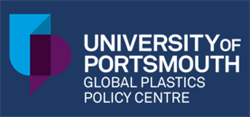 The Global Plastics Policy Centre at the University of Portsmouth has called on the United Nations to aim for zero new plastic pollution by 2040 as part of the proposed Global Treaty to End Plastic Pollution. Professor and GPPC director Steve Fletcher in an article published on November 9, 2022, in the Nature Reviews Earth and Environment Journal, said the treaty must have a well-defined target, as well as “aligned metrics to measure progress” and coordinated action at national level among member countries. The paper suggests that efforts should focus on stopping new plastic pollution, as countries cannot be expected to remove all current plastic pollution.[Image Credit: © Global Plastics Policy Centre]
The Global Plastics Policy Centre at the University of Portsmouth has called on the United Nations to aim for zero new plastic pollution by 2040 as part of the proposed Global Treaty to End Plastic Pollution. Professor and GPPC director Steve Fletcher in an article published on November 9, 2022, in the Nature Reviews Earth and Environment Journal, said the treaty must have a well-defined target, as well as “aligned metrics to measure progress” and coordinated action at national level among member countries. The paper suggests that efforts should focus on stopping new plastic pollution, as countries cannot be expected to remove all current plastic pollution.[Image Credit: © Global Plastics Policy Centre]
Report Predicts Failure To Meet 2025 Global Goal For Recycled Content For Plastic Packaging
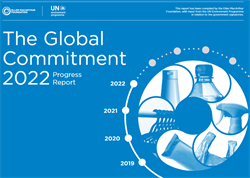 Signatories to the New Plastics Economy Global Commitment, launched in 2018, are expected to fail in realizing their commitments “to use only reusable, recyclable, or compostable plastic packaging by 2025”. Details from the 2022 Global Commitment progress report, prepared by the Ellen MacArthur Foundation and the UN Environmental Programme, also revealed that use of recycled plastic keeps on rising strongly, but while more than 50 percent of business signatories have reduced use of virgin plastics since 2018, overall demand is back to 2018 levels.[Image Credit: © Ellen MacArthur Foundation]
Signatories to the New Plastics Economy Global Commitment, launched in 2018, are expected to fail in realizing their commitments “to use only reusable, recyclable, or compostable plastic packaging by 2025”. Details from the 2022 Global Commitment progress report, prepared by the Ellen MacArthur Foundation and the UN Environmental Programme, also revealed that use of recycled plastic keeps on rising strongly, but while more than 50 percent of business signatories have reduced use of virgin plastics since 2018, overall demand is back to 2018 levels.[Image Credit: © Ellen MacArthur Foundation]
Contamination Keeps Almost One-Fifth Of Recyclable Waste From Being Recycled In England And Wales
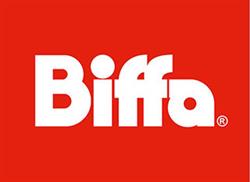 In England and Wales, 17 percent of business and household waste cannot be recycled because of contamination. According to waste management company Biffa, results of expert analysis of the latest available WRAP waste collection data from 2016 to 2020 showed that more than four in five people recycle waste items that should not be brought into material recycling facilities. Biffa’s study showed that the contamination rate of recycling waste was 13.4 percent in 2016 and rose to 17 percent by the end of 2020. Data also revealed that non-recyclable materials accounted for 10.4 percent of contaminates in 2020, while non-target materials accounted for 6.5 percent.[Image Credit: © Biffa]
In England and Wales, 17 percent of business and household waste cannot be recycled because of contamination. According to waste management company Biffa, results of expert analysis of the latest available WRAP waste collection data from 2016 to 2020 showed that more than four in five people recycle waste items that should not be brought into material recycling facilities. Biffa’s study showed that the contamination rate of recycling waste was 13.4 percent in 2016 and rose to 17 percent by the end of 2020. Data also revealed that non-recyclable materials accounted for 10.4 percent of contaminates in 2020, while non-target materials accounted for 6.5 percent.[Image Credit: © Biffa]
Copyright 2026 Business360, Inc.

